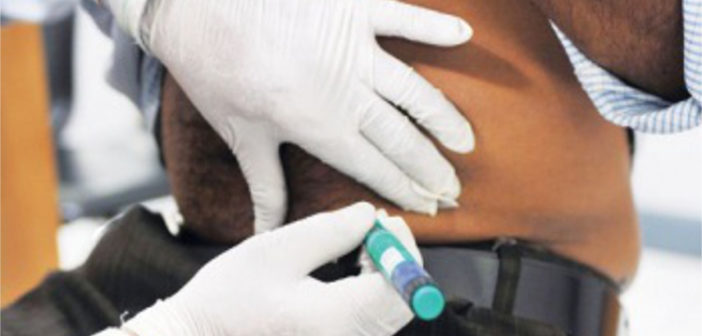Sub-Saharan Africa is in the midst of a rapidly expanding diabetes epidemic that could have devastating health and economic consequences for the region unless quick and decisive action is taken to turn the tide, according to a major new report from a Lancet commission co-led by Harvard T.H. Chan School of Public Health.
Diabetes is a lifelong condition that is characterized by a raised blood glucose level. There are two main types of diabetes: type 1 and type 2. Signs of diabetes include an increased sense of thirst, frequent urination, fatigue, weight and muscle loss, cuts or wounds that heal slowly and blurred vision. It is extremely important for diabetes to be diagnosed as early as possible – if left untreated the condition will get progressively worse.
The report from the Lancet Diabetes & Endocrinology Commission–the first comprehensive examination of diabetes in sub-Saharan Africa–will be published in The Lancet Diabetes & Endocrinology on July 6, 2017 (today).
“We were alarmed by both the magnitude of the problem, the speed at which diabetes has evolved, and how poorly health systems are responding,” said Rifat Atun, professor of global health systems at Harvard Chan School and one of three lead authors of the report. “And because diabetes is a risk factor for other catastrophic illnesses such as heart disease, stroke, and kidney failure, its increasing prevalence could propel a huge wave of chronic disease in many countries in sub-Saharan Africa.”
The Commission–a multidisciplinary group of more than 70 clinicians, experts in public health and health systems, economists, and social scientists–worked for three years on the report, analyzing health data from 2004-2013 from more than 39,000 people from 12 countries, and data on the quality and effectiveness of 6,096 healthcare providers from four countries. The report provides an up-to-date analysis on the burden of diabetes across sub-Saharan Africa, as well as challenges for health systems and potential solutions. According to the report, more than 90% of diabetes cases in sub-Saharan Africa are type 2 diabetes, suggesting that modifiable risk factors are major contributors to the burden of disease.
Some of the Commission’s main findings:
- As economies in sub-Saharan Africa transition from lower- to higher-income, diabetes’ prevalence in some countries has reached almost 22% in the adult population and as high as 30% in men and women aged 55-65 years, spurred in part by growing and aging populations, changes in lifestyle and eating habits, urbanization, and changing work practices.
- Currently, only half of those with diabetes are diagnosed, and of those, only 1 in 10 are receiving treatment.
- After decades of focusing on infectious diseases such as HIV, tuberculosis, and malaria, health systems are largely unprepared for dealing with the growing diabetes burden.
- If nothing is done to address the problem, the overall cost of diabetes in the region could nearly triple to more than $59 billion by 2030–1.8% of the region’s gross domestic product. Costs would result from loss of labor productivity–from premature death, people leaving the workforce early, sick leave, and diminished productivity at work due to poor health.
A concerted effort from communities, national governments, and international agencies is necessary to bring diabetes in sub-Saharan Africa under control, the authors wrote. The report called for more research to better understand the nature and magnitude of diabetes prevalence in each country in the region; financial resources from nations and international partners; training for community-based health workers in diabetes prevention and control; and the use of new technologies to aid in screening, diagnosis, monitoring, and treatment.
Other Harvard Chan School authors of the report included Till Bärnighausen, Iryna Postolovska, Sebastian Vollmer, Benjamin Ammon, Akhila Annamreddi, Sudhamayi Bhadriraju, Sujay Kakarmath, Ramu Kharel, Michael Kyle, Seitetsu Lee, Jennifer Manne-Goehler, Mohit Nair, Obiageli Okafor, Oluwakemi Okunade, David Sando, Anshuman Sharma, and Azhra Syed.
Support for the report came from the Rockefeller Foundation and the Harvard Medical School Center for Global Health Delivery.




